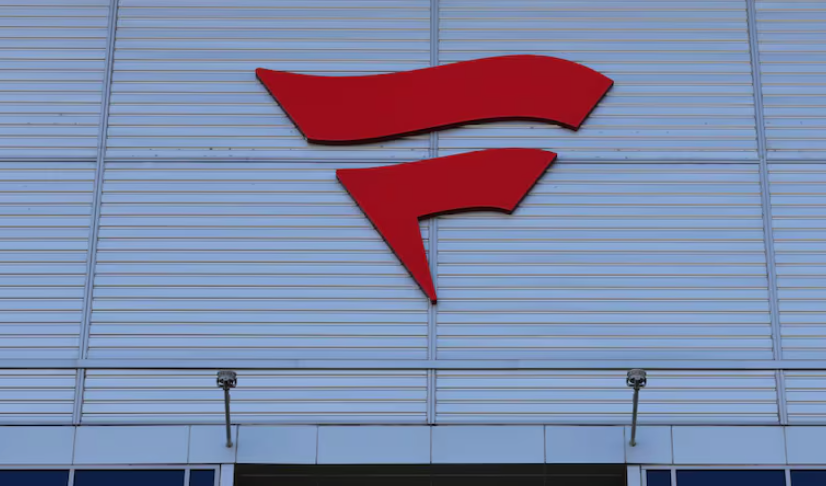
In the intricate world of trading cards—where loyalty to a collectible set is almost as fierce as fan allegiance to sports teams—a legal showdown of epic proportions is unfolding. Imagine superheroes locked in combat with collectors holding their breath—this is Panini versus Fanatics. The stage is set for a protracted courtroom battle as a United States federal judge has just ruled that competing lawsuits filed by Panini and Fanatics are allowed to strut their argumentative stuff.
A brief recap: Panini, a titan in the trading card universe, launched an anti-trust lawsuit against Fanatics in 2023. The crux of their claim? Fanatics, they argue, is aggressively gobbling up exclusive rights for NFL and NBA trading cards, essentially cornering the market in a way that even the most strategic of Monopoly players would envy. Panini alleges that such a stronghold threatens to wipe out competition, casting a long shadow over the vibrant, diverse landscape that many a card collector cherishes.
Predictably, Fanatics didn’t take these allegations lying down. They countersued, claiming that Panini disrupted their business ventures, painting Panini not as a victim of monopoly, but rather as a saboteur meddling in Fanatics’s quest for card supremacy. If this was a game of chess, it appeared neither player was ready to declare checkmate—at least not without a vigorous legal spar first.
Enter Judge Laura Swain of the Southern District of New York. Her gavel-wielding analysis is not just a routine judge’s ruling, but rather a well-choreographed legal pas de deux on the trading card parquet. Found within her learned judgment, are both nods and rejections, ensuring the plot will thicken further before the cards are even remotely laid on the table.
Swain’s gavel first fell against Fanatics’ ambitions to dismiss Panini’s entire anti-trust lawsuit as frivolous. She deftly spun Fanatics’ argument to the floor, finding enough meat on Panini’s claims of monopoly to merit further judicial investigation. According to Swain, Fanatics hasn’t exactly been playing with a full deck; their control over the market is substantial enough to suggest they’re dealing out more than just trading cards—they’re dealing in domination.
But Panini doesn’t get to revel in this small victory unscathed. Swain clipped Panini’s wings a tad by rejecting their damages claim. According to her insight, Panini’s portrayal of themselves as a wounded party in this trading card tragedy isn’t entirely convincing. Why should Panini cry foul when they’re one of the industry’s head honchos, potentially reaping benefits from this very juggernaut they’re tangling with?
Then comes Swain’s verdict on Fanatics’ claims of unfair competition, effectively defanging the countersuit. Panini, she posits, didn’t unlawfully tar Fanatics’ meandering road to card collection Nirvana; instead, they merely threw some legal speed bumps in Fanatics’ path. Merely challenging Fanatics’ ambitious expansion does not, per Swain, equate to breaking competition laws.
Perhaps most captivating is her ruling that Fanatics’ accusations regarding employee poaching carries enough weight to remain standing in court. It seems like Panini may have found themselves on questionable territory, wielding legal threats to ostensibly keep their talent fortified behind Panini walls, rather than letting them skirt over to Fanatics’ greener pastures.
As both sides prepare to move to the next phase of this legal drama—discovery—courtroom aficionados are already selecting their favorite popcorn. Panini and Fanatics executives will soon take the stand for sworn testimony, and an avalanche of internal documents will be summoned as evidence. Depositions from key witnesses are on the cards, quite literally.
The outcome of this showdown matters significantly, not just for these dueling giants and their every move scrutinized by their investors, but more importantly for the legions of enthusiastic trading card collectors. Their hobby’s landscape hangs in the balance.
Should Panini’s anti-trust endeavor reign victorious, the possibility of new contenders entering the market dance into collector’s visions like a promising new set of rare cards awaiting discovery. More companies could mean more creativity, more diversity, and perhaps more accessibility.
Conversely, if Fanatics’ tale of interference with their earnest business operations draws the sympathy of the court, Panini’s financial framework could take a hit, potentially warping the delicate balance they’ve maintained.
As varsity-collected collectors, many are pondering whether they will witness a proliferation of new card types and designs or if they’ll end up navigating an even more homogenized landscape controlled by Fanatics. Until the gavel strikes next or a settlement is reached, followers of this saga will remain captivated, closely watching how this tussle over trading card territory unfolds. One thing’s for certain: in this game, every card played matters, and we’ll all witness how this affects the vivid tapestry of collecting.
